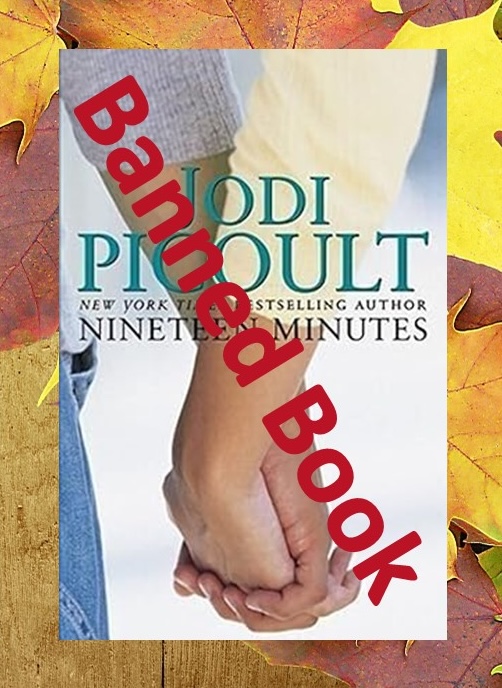A Review of Jodi Picoult’s Nineteen Minutes
Reading AudaciouslyRev. Betsy Simpson
Published 28 September 2024

Jodi Picoult’s book, Nineteen Minutes, is a fictional story about a mass shooting at a high school in a relatively small community. The shooter is a 17-year-old boy who has been bullied since early childhood, had inadequate family support and virtually no school support the few times he dared to ask. Picoult shared various background snippets illuminating the relationships Peter, the shooter, had with “the cool kids” who were jocks, popular girls and guys while he was ostracized and humiliated over and over again.
This story gave me pause as I reflected on how many school shootings have occurred in the past few months and years and some common threads connecting most, if not all of them. In addition to being rife in our society, themes of bullying, judging perceived outsiders vs insiders, friendship and loneliness, pain and anger, guilt and forgiveness are all themes that we find throughout the Bible.
Beginning in Genesis there is the creation of human beings: male and female, God created them, and called all creation good. Yet the first family found one sibling killing another out of jealousy, thinking that one was judged more highly than the other. The Israelites, freed from slavery in Egypt, came into Canaan believing they were God’s chosen ones and this land was promised to them exclusively. Later they came to judge the Samaritan Jews as lesser than the ones centered around Jerusalem. Samaritans were considered outsiders, lesser Jews than the Jews of Judea.
In the New Testament Jesus encountered negativity when he ate with and included outcasts in his company, even healing the child of one of their Roman oppressors. Betrayed by one of his own disciples, Jesus forgives him even though Judas was unable to forgive himself, eventually committing suicide. Jesus then willingly sacrificed his own life for the sins of all humanity. Yet still, after his death and resurrection, the apostles argued over whether or not Gentiles could be followers without first converting to Judaism.
Clearly scripture was intended to draw humanity together, but it also documents how difficult this is, and how even the people with whom God communicates most directly are constantly engaging in divisive behavior. Even today people use the Bible to divide; to sow fear, suspicion, pain, judgment and anger.
One quote in the book illustrated concisely how “the cool kids” maintained their sense of identity and superiority over Peter and other kids like him. Why the bullying was necessary, one of them said, is because “if there’s no them, there’s no us.” Indeed, that thought has been behind most of the wars and conflicts throughout history, and even to our present day. And many people believe that this is a reasonable lesson to draw from scripture as well. Yet a deeper, more thoughtful reading of the Bible shows that this is a misreading. The true message of the Bible is the call to remove the boundaries between “us” and “them” and forge a human identity that binds us together. Interestingly, both Moses and Jesus specifically addressed those who would see themselves as leaders on moving past an us vs. them mentality.[1]
We need all “cool kids,” — as well as successful students, athletes and youth leaders — to hear this message today, too, and Picoult’s book delivers this lesson. When the shooter, Peter, goes on trial for killing ten students and wounding numerous others, the whole town grieves and is out for blood — but all Peter wants is the opportunity to tell why he did it. “They started it.” Through the work of his defense attorney, he relates all that drove him to the breaking point. In the end he is convicted and goes to prison, while his parents and the rest of the town are left with the truth of how this divisive ethos has caused so much pain and suffering.
Despite its timely and urgent message, this book has been banned book in some schools because there are scenes of violence, sexuality and profanity. Yet, a letter from a member of the National Coalition Against Censorship made a strong argument in favor of allowing this excellent book to remain in the high school library.[2] Citing the recommendation of a committee of teachers, a school principal, a librarian and a school psychologist who reviewed the book, the NCAC hoped to ensure the students’ right to read, inquire, question and think for themselves about challenging material. I highly recommend this book for the edification of all “cool kids” — as well as the rest of us.
1- https://aleteia.org/2018/09/29/when-us-vs-them-poisoned-the-apostles-the-way-its-poisoning-us 2- https://ncac.org/incident/letter-opposing-challenges-to-nineteen-minutes-by-jodi-picoult
